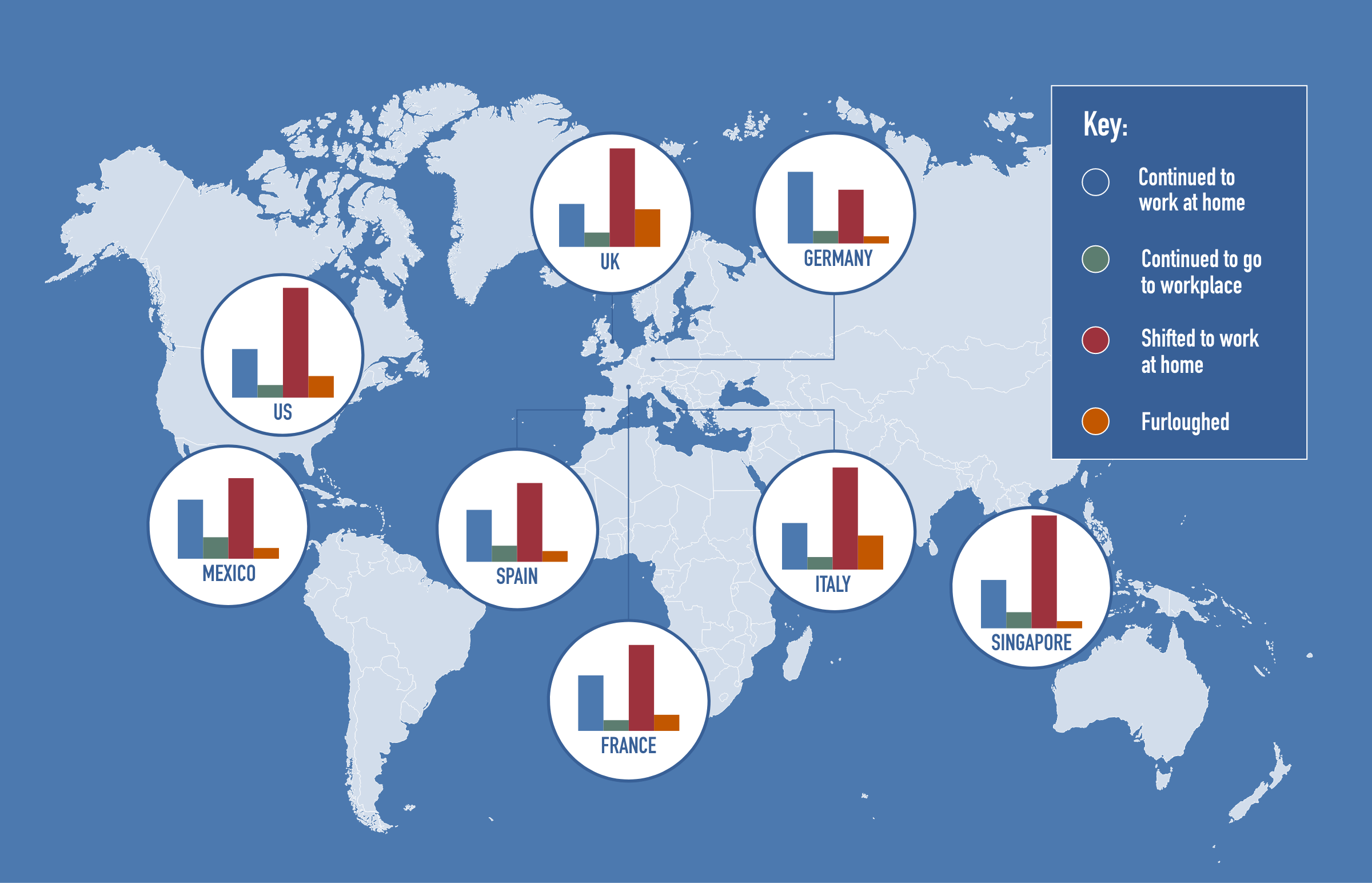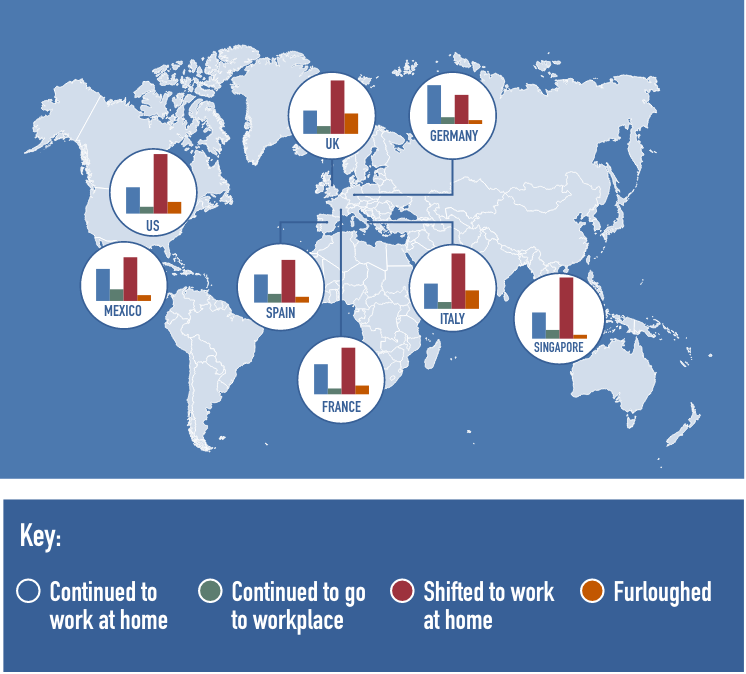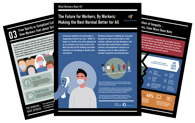A dramatic workforce transformation is happening in front of our eyes. Work literally left the building and whole industries are disrupting at speeds never seen before.
In these unpredictable times, one thing is certain – this crisis should be a catalyst for a new future of work, that is more flexible, more diverse and more wellbeing-oriented than we could ever have imagined.
To find out how this crisis is accelerating What Workers Want, ManpowerGroup asked more than 8,000 people in 8 countries about the future for workers.
Download the results for fresh insight into how this next normal might eventually be better for everyone.


UK and Italy report the highest proportion of people furloughed as government schemes impacted fast with high proportion of businesses taking advantage of wage replacement programs.
Workers in Mexico and the US are most likely to have chosen to WFH or to be self-isolating to protect themselves and others.
Worked from home due to COVID-19
Continued going to workplace
Furloughed
Always working from home
Laid off
Most positive, more space, keen to catch up with colleagues, more appetite to learn and network to move up and earn more.
Keen to return, prefer to collaborate in-person, value space between work and home.
Most likely to feel relieved, least likely to be nervous or concerned about health. Keen to get back to the office to collaborate and concentrate.
Italy, one of the countries first impacted feel most confident yet least keen on losing their newly found autonomy and freedom.
Least positive generation, especially parents. Seek most reassurance that sick workers told to stay home, most eager to avoid the commute, least willing to lose flexibility they have gained.
Mexico, Spain and U.S. most nervous, least relieved about returning to work.
In the UK & U.S. where response has been most politicized and fractured, people are most reluctant to return.
Large companies need to do most persuading to bring people back. These workers are most concerned about exposure to greater risk, most likely to feel positive about return.
Being able to both socialize (30%) and collaborate (29%) with colleagues in person is what workers find most beneficial about returning to their workplace.
agree that the crisis marks the end of the full-time work in the office
want more remote work to better balance family life - and most believe they’ll have a better work life blend going forward


We are here to help and provide guidance on your job search and skill development needs.
FIND JOBSKnow that we are here to help and provide guidance on how to best manage your workforce.
CONTACT US FOR WORKFORCE SOLUTIONS